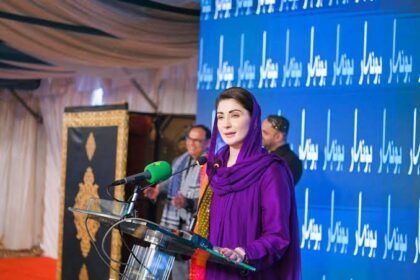For the last one month, a budget frenzy has gripped our parliament, with both the treasury and opposition at loggerheads. The Pakistan Muslim League Nawaz-led government presented its first budget after coming into power on June 12, 2024. The total volume of the current fiscal year budget stood at $67.76 billion, which got passed from the National Assembly on June 28, 2024. Thus, July 1, 2024 was the day when the new taxation measures of Rs1.761 trillion as part of the current fiscal year budget, took effect along with its impending consequences. Already, the budget sessions have witnessed heated debates and pandemonium created by the opposition leaders in the National Assembly and Senate against what they perceive an IMF-dictated budget burdened with heavy taxes. Reportedly, the new tax measures comprise an increased ratio of pay deductions from the salaried class, indirect taxation of the general public as well as introduction of new taxes in the real estate and certain other industries. Despite the fact that chaos and confrontation remain the hallmark of every budget session in Pakistan, there seems no end to this parliamentary crisis and the suffering of the masses. In fact reforms are being expected from those who have failed to reform themselves. Every time, a debate ensues in the upper or lower houses, our parliament turns into a fish market, where everyone tries to sell their personal narratives without giving due considerations to national issues that are related to common people (i.e. education, healthcare and high commodities prices, etc). The ultimate sufferers of this debacle are the masses, who pay the price in the long run for bringing these politicians into parliament through the power of vote.
On the other hand, the government, currently consisting of an alliance of political parties, is constrained to provide any genuine relief to the masses. Massive borrowing at the national and international level by the successive governments has always proved a big challenge during the preparation of fiscal policies and a people-friendly budget remains a dream. Main factors like International Monetary Fund (IMF) dictates in the form of tough conditions, defense spending and the government’s own expenditure consume a major chunk of the budget. The solution lies in increasing the income, which is sought through the imposition of heavy taxes on the vulnerable segments of the society. Critics have taken financial acumen of the government to task for penalizing the middle class with such harsh taxation, which is already reeling under severe inflation. The issue of filer and non-filer remains an enigma for those sitting at the helm of the affairs. The situation has further exacerbated due to the government’s somewhat unrealistic revenue collection targets. The PML-N government has set a challenging tax revenue target of Rs13 trillion ($46.66 billion) for the year starting July 1, up about 40% from the current year while the upcoming year’s growth target has been set at 3.6% with inflation projected at 12%. The government is hopeful that it will achieve economic stability through its monetary policies. In order to substantiate its claims, the government points to the current performance of the Pakistan Stock Exchange (PSE) that has broken all previous records of shares’ business. It is also a reality that during the fiscal year 2023-24, the stock exchange demonstrated exceptional performance as it stood the best performing equity market in the world after its benchmark KSE-100 Index closed the final session at 78,444.96 last month.
Overall, the government is bent upon assuring the parliament that they are moving in a right direction and once the IMF loan program of six to eight billion US dollars is pledged conditional with the passage of the budget and its implementation, country’s financial affairs will start showing positive indicators. The government also states that the inflation rate has lowered from 38% to 11%. Although the Pakistan People’s Party showed some resistance to passage of the budget yet the party refused to boycott the budget sessions on the grounds that it could lead to financial instability in the country prompting concerns about dislodging of the government. Other allies except Jamiat Ulema-e-Islam-Fazal (JUI-F) have also shown conditional support to the government during passage of the budget. The government’s priorities and politicians’ compromise are creating difficulties for the common man. The country has become a playing field for policymakers and the masses have turned into objects for such financial experiments. The imposition of heavy taxes on the salaried class has made it difficult to make a proper household budget. Almost all sectors are in a shambles. Education, healthcare sector spending is the lowest compared to other Asian countries. Unless the government adopts austerity measures at all levels, no budget can alleviate suffering of the masses. Raising taxes without addressing wasteful spending feels like citizens are being squeezed while the real problems linger on. So far, bureaucratic spending and government expenditure have not been curtailed. Undue perks and privileges for the parliamentarians and those running the affairs of the government are reviewed; a real change is not possible. The curse of protocol and the upkeep of houses and offices belonging to those who come to power is the real issue that needs to be addressed on an urgent basis. The government needs to announce performance-based allowance in every public sector department while monetary benefits for government functionaries need to be tied with results to be shown by their relevant institutions. The government needs to focus on public debt-to-GDP ratio to bring it to the sustainable levels and prioritize improvements in balance of payments position. Every budget document must focus on the needs of the common man instead of making their lives worse through undue taxations. All lawmakers are brought into assemblies to ameliorate suffering of citizens, not to exacerbate their problems.






